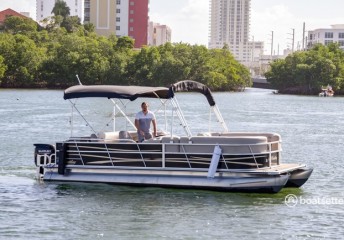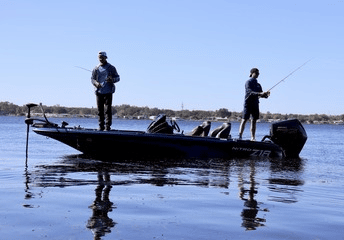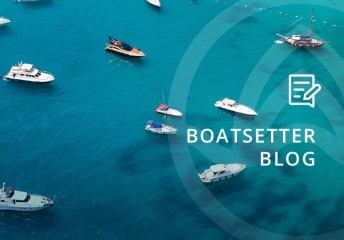7 Things to Consider Before Getting a Captain’s License
Last Updated on June 29, 2023 by Boatsetter Team
Mastering your boat is one thing, but formally being a master of a vessel is another. This worthwhile accomplishment comes with exacting but fair requirements.
If you’re 18 or older, you can obtain one of the most respected credentials available for boaters, a captain’s license. Not only does it ensure you know a lot about safety, but it also lets you operate higher-volume, large yachts.
Additionally, it opens up the opportunity to take paying passengers out on cruises. Whatever your reasoning, you’ll need some strong sea time under your belt, plus meet further qualifications. Here are seven items to consider before getting a captain’s license:
- Deciding which license is appropriate
- Document the minimum days’ requirement
- Boost up on health
- The drug test
- Complete first-aid training and CPR
- Prep makes perfect
- License expiration & continued learning
If you already have one, consider this: join the Boatsetter captains network!
List your boat & start earning an avg. of $20K yearly with Boatsetter

1. Decide which license is appropriate
The U.S. Coast Guard issues captain’s licenses. They fall into two primary categories, OUPV and Master. Since a Master’s license is for a well-experienced boater, the OUPV likely suits most of you. It stands for Operator of Uninspected Passenger Vessel.
Also commonly called a “Six Pack” license, it lets you take out up to six paying passengers and crew. Additionally, three different OUPV licenses are available: Inland License, Great Lakes & Inland License, and Near Coastal. Inland refers to all inland rivers and bays.
The second includes those waters as well as the Great Lakes. Near Coastal, meanwhile, means waters no more than 200 miles offshore. All three require you to have at least 360 days of documented deck service aboard boats.
Furthermore, 90 of the days must be within the past three years, on boats within those specific waters, too.
2. Document the minimum days’ requirement
To get a captain’s license, you also need proof that you’ve served time at the wheel or worked aboard. The Coast Guard provides a form, CG-719S, for this purpose. If you own a boat, you can document your days.
Otherwise, have the captain or owner of the boat upon which you work fill it out. Either way, four hours underway in one day aboard a boat of less than 100 gross tons qualifies as one day.
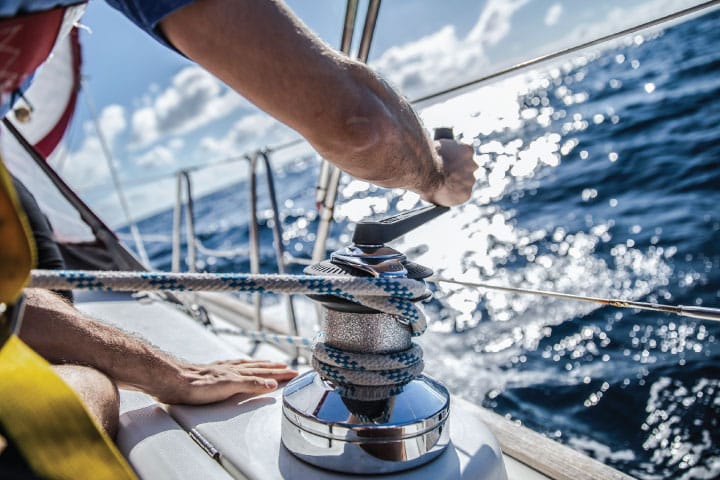
3. Boost up on health
Boating is as much about safety as it is about fun. Therefore, the Coast Guard requires passing a physical within 12 months before applying for your license.
4. The drug test
It doesn’t matter if you live in a state where recreational marijuana is legal. Neither does it matter if you have a prescription for medical marijuana. Since it’s illegal at the federal level, you won’t get a license if you test positive.
Want hands-on practice? Join the class on the water with Boatsetter Academy
5. Complete first-aid training & CPR courses
You must submit documented proof of taking these within a year before applying. The Coast Guard provides a list of approved programs. Ones from Red Cross, for example, meet the requirements. Maritime-training schools often do as well.
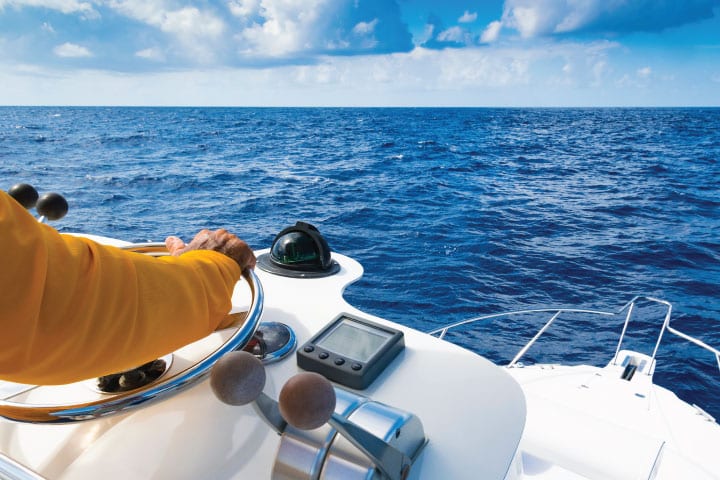
6. Prep makes perfect
Submitting all the above-mentioned documents is just the first step. Obtaining a captain’s license ultimately requires sitting for a written exam. The test covers the Rules of the Road, environmental responsibilities, captain’s responsibilities, and more. Thankfully, study courses and practice tests are available from reputable sources, including maritime-training schools.
7. Expiration date & continued learning
Like other licenses, once you get a captain’s license, it must be renewed. In this case, the period is every five years. Although you won’t need to take a written exam, you do need to fill out a renewal form, plus undergo a physical and take an approved drug test.
About us
Boatsetter is a unique boat-sharing platform that gives everyone— whether you own a boat or you’re just renting — the chance to experience life on the water. You can list a boat, book a boat, or make money as a captain.
List. Rent. Earn— Only at Boatsetter

A journalist with more than 30 years’ experience, Diane M. Byrne is the owner
of MegayachtNews.com, a daily website educating American superyacht owners, buyers, and
their circles of influence about the leading builders, designers, cruising destinations, and more.
She founded the website in 2007 as the first, and still the only, American-focused online media
outlet exclusively covering this market. It features all-original content, for real stories of real
interest.
Diane is additionally one of the most-sought-after journalists for expert editorial coverage and
commentary about not only superyachts, but also general boating and yachting. Her byline
appears in Boatsetter.com, DiscoverBoating.com, and the magazines Luxury Guide, Ocean,
Yachting, and Yachts International.
Additionally, Diane is the Chair of the U.S. Superyacht Association, having been on the Board of
Directors since 2015. Outside of yachting, she’s a trustee of Sempre Avanti, a non-profit
resource supporting Italian and Italian-American individuals, businesses, and organizations in the
United States and Italy.


